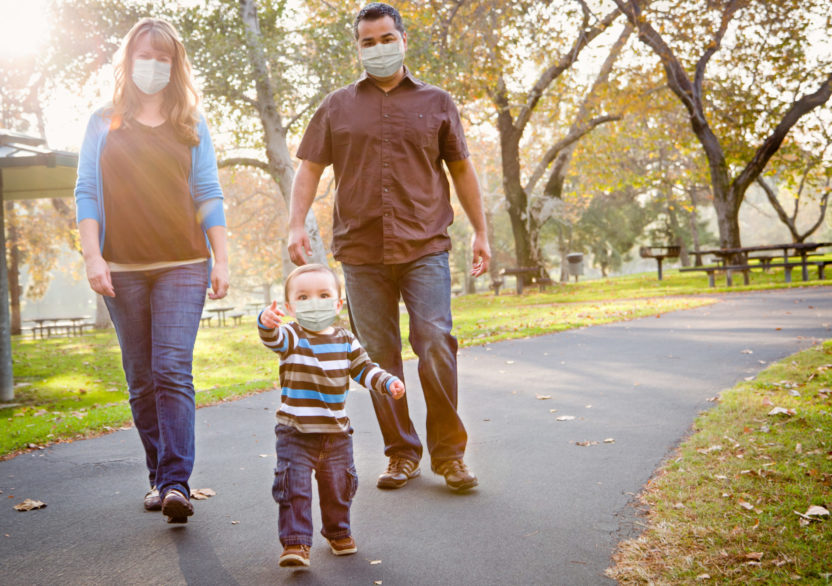by Desiree Shapiro, MD
COVID-19 has affected all of our lives and challenged us in various ways. How do we support one another and cultivate our resilience amidst the chaos? Here are three C’s to consider incorporating into your daily routine and sharing with your children and family today.
Compassion
This is a time to choose kindness and compassion. Everyone is responding in different ways and has circumstances that are linked to those responses. Feelings may fluctuate rapidly. For example, you may wake up feeling energized and determined, only to experience restlessness and disappointment later in the day. The full range of human emotions is active and amplified right now. A helpful strategy is to acknowledge these feelings and be kind to yourself. Self-compassion includes the following:
- Self-kindness: Treat yourself as you would a friend.
- Mindfulness: Be mindful of your feelings and emotions, name and notice these feelings, and observe them as they come and go. If you have younger children, do a regular check-in on their emotional well-being and help them understand and process their feelings.
- Common humanity: Remember that we are all in this together as a community. Extending compassion to others will enhance your well-being and the well-being of those in your circle.
Connection
Although the separation buzz phrase we have been hearing is “social distancing,” it is really “physical distancing.” It is essential to stay connected and social as much as possible despite physical restrictions. Texting, social media, email and other digital, writing-based platforms are great ways to maintain connections with friends and loved ones. However, hearing the human voice and seeing a familiar face can brighten your mood and recreate an in-person interaction. Look into options such as Zoom, Microsoft Teams, Skype, FaceTime, Google Hangouts and Meet, Facebook, and WhatsApp to be together virtually. During virtual hangouts, the following tips can help keep conversations meaningful for all involved:
- Suggest a portion of the conversation be unrelated to COVID-19. Distraction is a healthy way to cope.
- Laugh, laugh, laugh! Share a joke, funny video or a memory from the past. Give yourself permission to have fun.
- Invite someone for a five-minute check-in to ease the pressure of having to talk for an extended or open-ended amount of time.
- Share gratitude and appreciation for others — no matter how small of a gesture, thanking others is valuable and encouraging.
Control
Take control over whatever you can! The more we focus on what is not in our control, the more uneasy we become. We do not have the independence we are accustomed to right now, but we can still take charge of our behaviors and the choices we make. Doing this can take practice, but it’s possible, and the following actions can help you get there:
- Set a schedule, make a routine and celebrate any success of sticking to it or accomplishing tasks, even if it’s simply taking a break outside or listening to your favorite song.
- Take control of your health by exercising, opting for healthy snacks and maintaining physical distance from others.
- Help children by hearing their voices and give them a choice whenever possible. A sense of autonomy and self-efficacy can help engage them in supporting the family unit.
Let’s embrace this “new normal” together with compassion, connection and taking control when we can!
Dr. Shapiro is an attending physician and school wellness liaison at Rady Children’s Hospital-San Diego, and is the program director of University of California San Diego School of Medicine’s Child and Adolescent Psychiatry Fellowship Program at Rady Children’s.
